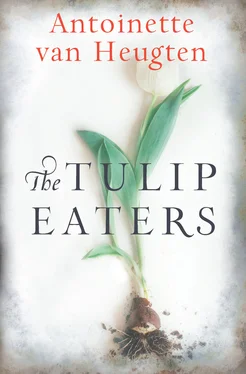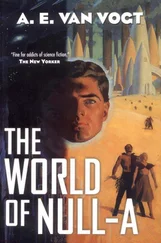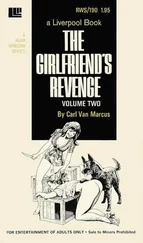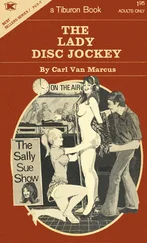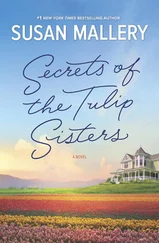She sat on the broken chair. It wobbled, but held her weight. She put the metal box on her lap. Its clasp was broken, as if it had been smashed long ago. She struggled to breathe as she pulled back the lid and aimed the wavering light at its contents.
Nora stared into it, afraid of what she might find. Could this be it? Could it contain the clue that would connect the dots to these horrible events?
Hands shaking, she cradled the box in her lap and aimed the light down. A sheaf of papers—yellowed onionskin with battered edges bound by a green ribbon. She untied it and spread the papers on her lap. She realized she was holding her breath. She stared at the green ribbon as it fell to the floor, a satin spiral. Would it be a clue, a Pandora’s box, or worse—nothing?
She took a breath, picked up the flashlight and pointed it at the first page. It was thick paper that seemed to be an identification document. The name at the top was “Anneke Brouwer.” A small black-and-white photograph of her mother stared back, unsmiling. Nora felt almost dizzy. Her mother’s maiden name, as far as she knew, was de Bruin. Moving her index finger slowly down, she peered at the card more closely.
“Damn!” Her hands shook so that the beam of light skittered wildly. She gripped it tighter and looked again. The card was dated July 1945 and stated that Anneke was born in 1920. It had an arresting illustration at the top, a black-and-red flag with a triangle in the center. The emblem of the Dutch lion with sword and arrows stood in front of a blue-and-white shield. Nora felt confused. She knew what the Dutch flag looked like, and this was not it. But it was the words in flamboyant print underneath that caused her to gasp. “Nationale-Socialistische Beweging.”
“What?” she whispered. “The NSB?” She knew enough Dutch history to know that during the war, this was the reviled organization of the Dutch Nazis. “No!” she cried out. “It can’t be!” She dropped the stack of papers as if they were coiled rattlesnakes.
Her mother an NSB-er? A Dutch Nazi? The one thing Anneke had told Nora when she had asked about the war was that she had fought for the resistance. Nora strained to process this new information, to see where its edges might fit into the puzzle about Anneke’s murder and Rose’s kidnapping.
She snatched up the documents and peered at the card again. It was incomprehensible! The print before her eyes shimmered and rippled, a mirage in the desert. Dizziness filled her head as she felt the flashlight slip. Her sweaty forehead fell into her filthy hands.
She sat back and stared at the brown dust that had sprinkled over the documents, the lockbox and her hands. What did all this mean? Who was her mother? A hero fighting the Germans or a fanatic Dutch Nazi carrying out Hitler’s version of the New Order?
Moments later, she raised her head. She had to go on. With shaky hands, she laid the first page on the floor and picked up the second. It bore an ornate wax stamp. She picked up the flashlight and examined it, some kind of legal document so translucent and brittle it could have been an ancient scroll. The bloodred seal cracked in two as she raised the paper into the watery beam of light. A small photo of her father as a young man was stapled to the right corner. Unaccustomed to the legalistic Dutch, it took her a while to make out the gist of it.
In the Name of Her Royal Highness
Queen Wilhelmina of the Netherlands,
This action is hereby brought against the Dutch Citizen hereinafter named
HANS ALBERTUS MARTINUS MOERVELD
For the Murder of
ABRAM DAVID ROSEN
By virtue of the Complaint sworn to before
The Royal Court on this
Sixteenth Day of September
In the Year
Nineteen Hundred and Forty-Five
* * *
Nora gasped. Her eyes flew to the middle of the page, where the charge was stated in bold print, along with the Oordeel, the Court’s decision. Only two words.
WAR CRIMINAL
And the Vonnis, the sentence.
DEATH.
8
Nora stared at the paper, the words blurred. Finally, she calmed herself enough to focus. Her father’s real surname must have been Moerveld. And the paper stated he had been tried in absentia for murder. Tears of disbelief fell onto her cheeks. Her father—a murderer? Of a Jewish man during wartime?
“No, Papa, no!” she whispered. It couldn’t be. Imagining him, she saw a gentle smile on his face as she sang “Twinkle, Twinkle Little Star” for her first-grade class at Poe Elementary; felt his strong arms pick up her bruised body from the street the first time he tried to teach her to ride a two-wheeler; the cozy comfort as she sat on his lap as he read La Fontaine to her. Whoever the man described in this document, it was not—could not—be her father.
And Abram Rosen, who was he, and why would Papa be accused of killing him? The attic air choked her. No, no, no! She could not accept this. Wiping her eyes, she looked at the last line of the document and that one, black, irrevocable word: Death.
She glanced through the remaining papers and then folded them into a clumsy parcel. She would take them downstairs to Marijke. She felt a new stab at their import, but also something electric. This had to be the “something else.”
As she started to put the papers back into the metal box, she peered into it. Something was stuck to its metal side. She scrabbled her fingernails against it until it came free. A small booklet, a Dutch passport. A stern, younger version of her father stared back at her. Underneath was the name “Hans Moerveld.”
Why had he changed his name to “de Jong”? And when had he and Mama decided to abandon their true identities? If the documents were true—and how could she dispute them—then they both had urgent reasons to flee. Papa must have whisked Anneke away to avoid arrest.
Nora thought back to her college days, when she had embarked on a self-made path to learn about her parents’ lives during the war. Neither would speak of it. They each insisted that she not ask more questions. Their admonition had, of course, fueled her intention to do precisely that.
She’d learned that after Dutch liberation day on May 5, 1945, known NSB-ers—men and women—had been dragged down the streets and jeered at by their neighbors and countrymen. Many were paraded around with shaved heads to further demonstrate how reviled they were. Some were pelted with rotten fruit, tied up and beaten.
Could that be why the killer had hacked off clumps of Anneke’s hair? God, what other reason could there be? Her mother a Nazi and her father a murderer?
And this killer—whoever he was—maybe he had come back for revenge. Maybe he’d also meant to kill Papa but didn’t know he was already dead.
Nora’s head spun. But why did this bastard wait thirty years? And even if Mama had been an NSB-er, what could she have done that would warrant such a long-held hatred and brutal death?
Конец ознакомительного фрагмента.
Текст предоставлен ООО «ЛитРес».
Прочитайте эту книгу целиком, купив полную легальную версию на ЛитРес.
Безопасно оплатить книгу можно банковской картой Visa, MasterCard, Maestro, со счета мобильного телефона, с платежного терминала, в салоне МТС или Связной, через PayPal, WebMoney, Яндекс.Деньги, QIWI Кошелек, бонусными картами или другим удобным Вам способом.
